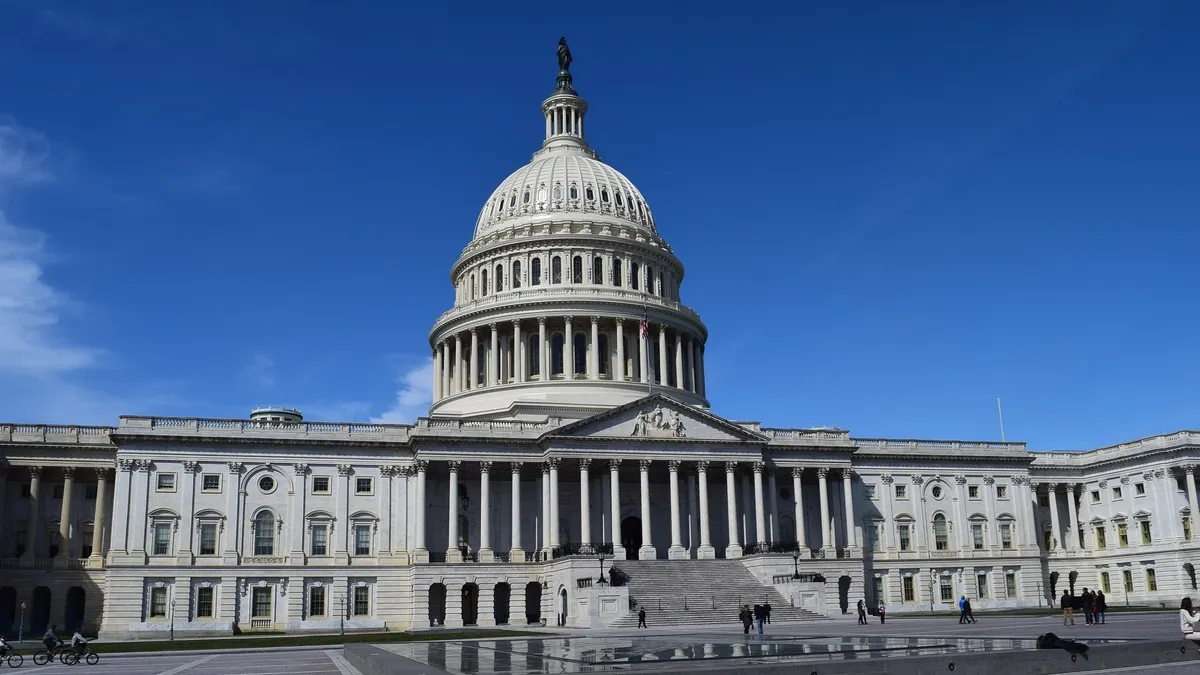UPDATE: Oct. 18, 2019: The Supreme Court agreed Friday to take up Seila Law v. CFPB, a case challenging the constitutionality of the Consumer Financial Protection Bureau's structure. The Justice Department filed a brief in that case last month, criticizing the clause allowing the president to only remove the agency's director "for cause." Supreme Court Justice Brett Kavanaugh was on the U.S. Court of Appeals for the D.C. Circuit’s three-judge panel that ruled the CFPB's structure unconstitutional.
----
Consumer Financial Protection Bureau Director Kathy Kraninger faced several testy exchanges from Democrats in both houses of Congress amid two days of hearings this week on Capitol Hill.
Lawmakers scrutinized Kraninger over her views on the constitutionality of the agency’s structure, a recent dearth of fair-lending violations and many individual cases in which the CFPB was criticized for falling short on enforcement.
House Financial Services Committee Democrats issued a blistering 333-page report Wednesday accusing Kraninger of “leaving consumers high and dry” because her agency didn’t require remediation during a number of settlements.
Rep. Carolyn Maloney, D-NY, drew a rebuke from Republicans when she took Kraninger to task for seemingly going against the advice of her own staff.
“If the consumer bureau can’t get relief for consumers who have been harmed — and you admit they’ve been harmed — then what are you doing?” Maloney asked. “If you’re not following direction from your staff to help consumers that are harmed, then you are absolutely worthless.”
Maloney apologized after Republicans said her comments violated decorum, but she challenged Kraninger again over the CFPB’s leadership structure, which allows the president to remove the director only “for cause.”
The clause is hotly debated. At Wednesday’s hearing, Rep. Patrick McHenry, R-NC, called the CFPB “an unaccountable directorship.”
The Justice Department has called the clause unconstitutional and urged the Supreme Court last month to weigh in. The court could decide as soon as Monday whether to take the case.
Kraninger has taken flak for adjusting her position on the matter. During her nomination process last year, Kraninger told Congress "the ultimate question of the constitutionality of the Bureau's structure is one for Congress or the courts to resolve."
But Solicitor General Noel Francisco wrote in his brief to the Supreme Court in September that "the Director has reconsidered that position."
“Congress deliberately created the CFPB as an independent regulator,” Maloney said. “For you to second-guess Congress' judgment on this constitutionality of the CFPB and to argue against the CFPB's structure in court is disrespectful of Congress.”
One Republican lawmaker said he saw Kraninger’s reconsideration as quite the opposite.
“I want to thank you for respecting many of us, members of Congress, who believe that the bureau's structure is unconstitutional,” said Rep. Andy Barr, R-KY.
Kraninger stood her ground Wednesday. “I believe fundamentally the Supreme Court and Congress need to decide and settle once and for all so that the bureau can move forward and actually engage in its mission proactively,” she said.
The constitutionality question resurfaced Thursday, when Sen. Sherrod Brown, D-OH, said Kraninger’s waffling made him question her “credibility as a public official.”
“So, if someone comes to Congress, commits to do one thing and then does another, is that just lying to Congress?” Brown asked.
Rep. Maxine Waters, D-CA, alleged Kraninger overruled CFPB staff, instead siding with political appointees in a settlement with payday lender Enova International. Enova was fined $3.2 million for taking funds from thousands of consumers’ bank accounts without their knowledge. The company offered to pay $1.6 million in restitution to consumers, but the CFPB rejected that and did not require any redress, according to Wednesday’s 333-page report.
Kraninger rebutted that the settlement was “negotiated” and that consumers owed the money. "The decision is mine. Given it's my decision, I did not overrule anyone," she said.
Rep. Joyce Beatty, D-OH, cited a CFPB report indicating the bureau had not issued any fair-lending violations over a six-month period.
"This was the first time in history when there was no discrimination in six months. Do you really expect me to believe that?" Beatty asked.
Kraninger said the report "is not a measure of discrimination happening."











